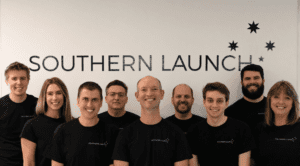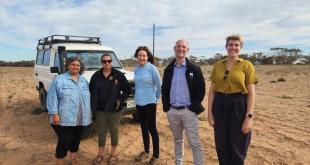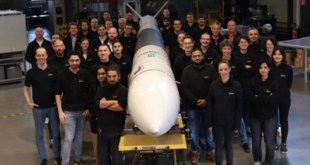
An online B2B platform to facilitate matching payloads with available launch capacity has been developed by German IT company HOSTmi. The platform will enable the hosting of payloads across a diverse range of space platforms globally, including orbital, sub-orbital, and deep-space campaigns. Southern Launch, as a provider of launch services in South Australia, has recognized the benefit that the HOSTmi platform can provide to its customers, and has executed a Brokerage Agreement with the company.
The premise of the HOSTmi platform is that every rocket launched has a certain capacity of payload it can carry to a specific orbit. Generally, the mass of the primary payload will be less than the mass that the rocket can lift, so there is spare capacity available. Rocket manufacturers and operators try to sell this extra capacity to smaller payloads which are then added to the primary payload and launched at the same time. Although there are a few disadvantages, given the secondary payload must follow the schedule of the main customer or accept certain orbital restrictions, it can be a very attractive solution for budgetary reasons.
 As a young dynamic start-up, HOSTmi, analyzed this market and built a platform which acts as a dedicated space marketplace for such secondary payloads. At their website (www.hostmi.space), a potential customer can enter the characteristics of their payload and the launch date and orbit. The fully-automated algorithm then proposes launchers which can accept this secondary payload at the right moment in time.
As a young dynamic start-up, HOSTmi, analyzed this market and built a platform which acts as a dedicated space marketplace for such secondary payloads. At their website (www.hostmi.space), a potential customer can enter the characteristics of their payload and the launch date and orbit. The fully-automated algorithm then proposes launchers which can accept this secondary payload at the right moment in time.
As both a Launch Service Provider (LSP) and launch facility operator Southern Launch will use the HOSTmi service to offer an intuitive and responsive service to worldwide satellite customers to source both dedicated launches and ride share opportunities on vehicles operating at Southern Launch sites.
Lloyd Damp, founder and CEO of Southern Launch said, “As a launch operator, we’ve recognized that this service has huge potential for our customers and the growing space ecosystem. Having access to the HOSTmi platform will help Southern Launch operate more frequently, with more payloads increasing the return on investment and further boosting Southern Launch and Australia as a focal point for access to space.”
Managing Director of HOSTmi, Pouya Haschemi described the cooperation as follows, “Southern Launch offers a novel and unique solution in an emerging and promising market, namely the launch market. We notice that an increasing number of launch providers from different regions of the world are entering the market. They have clever people, latest technologies, innovative approaches, and a vast market. The only aspect that is lacking for most of them are optimal geographical conditions to turn the aforementioned attributes into a high-quality service.
Southern Launch has identified a key market demand, which they aim to meet with a great end-to-end solution underpinned by the best geographic and environmental conditions. We at HOSTmi believe that Southern Launch is taking place exactly where the aviation industry started 100 years ago when the first global hubs for airlines were established. Given the historical development of the aviation industry and the prospects of the space industry as such, we believe that Southern Launch will provide significant value to our customers who are looking for a straightforward, agile and cost effective solution to realize their space missions.”





